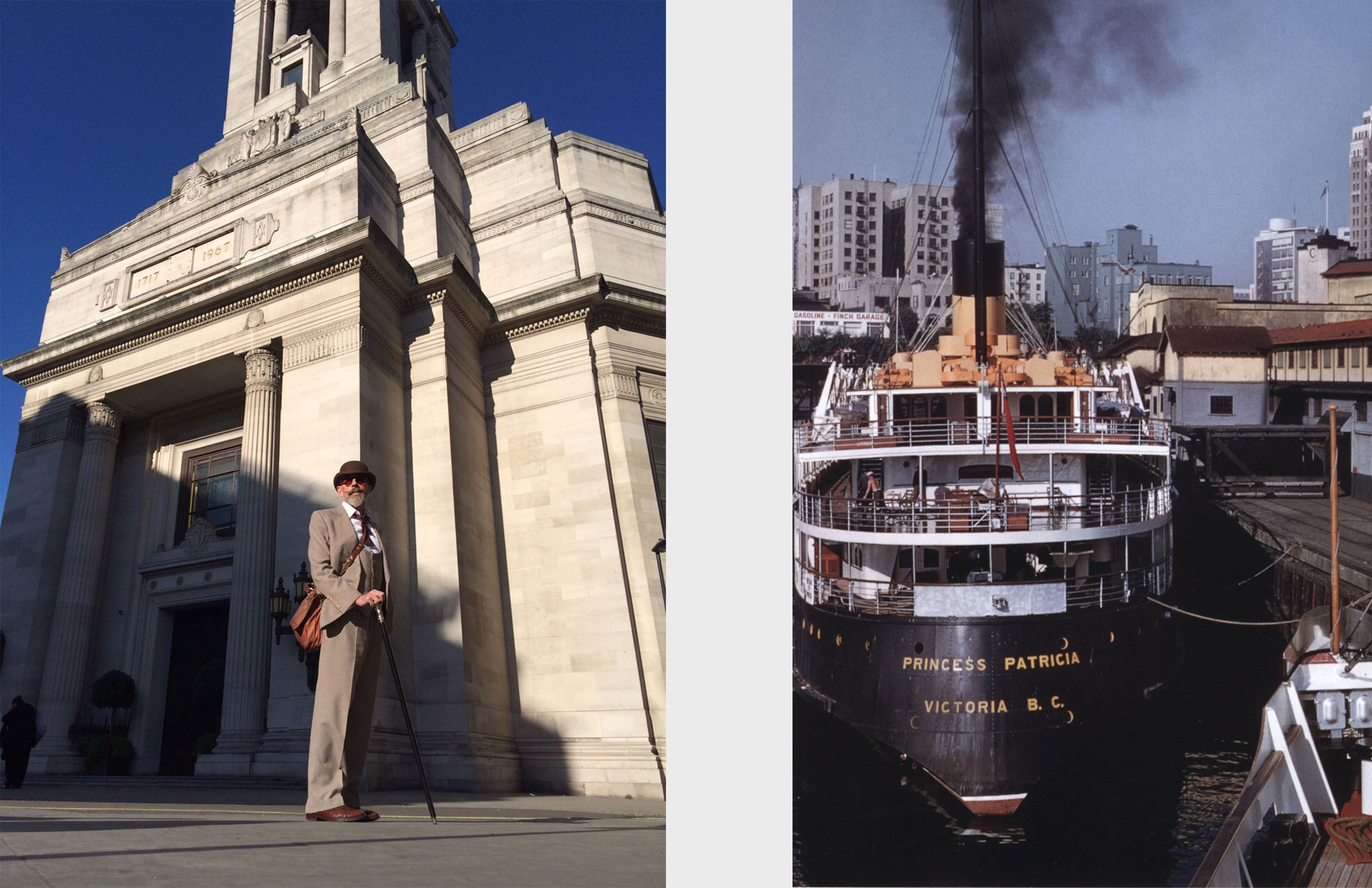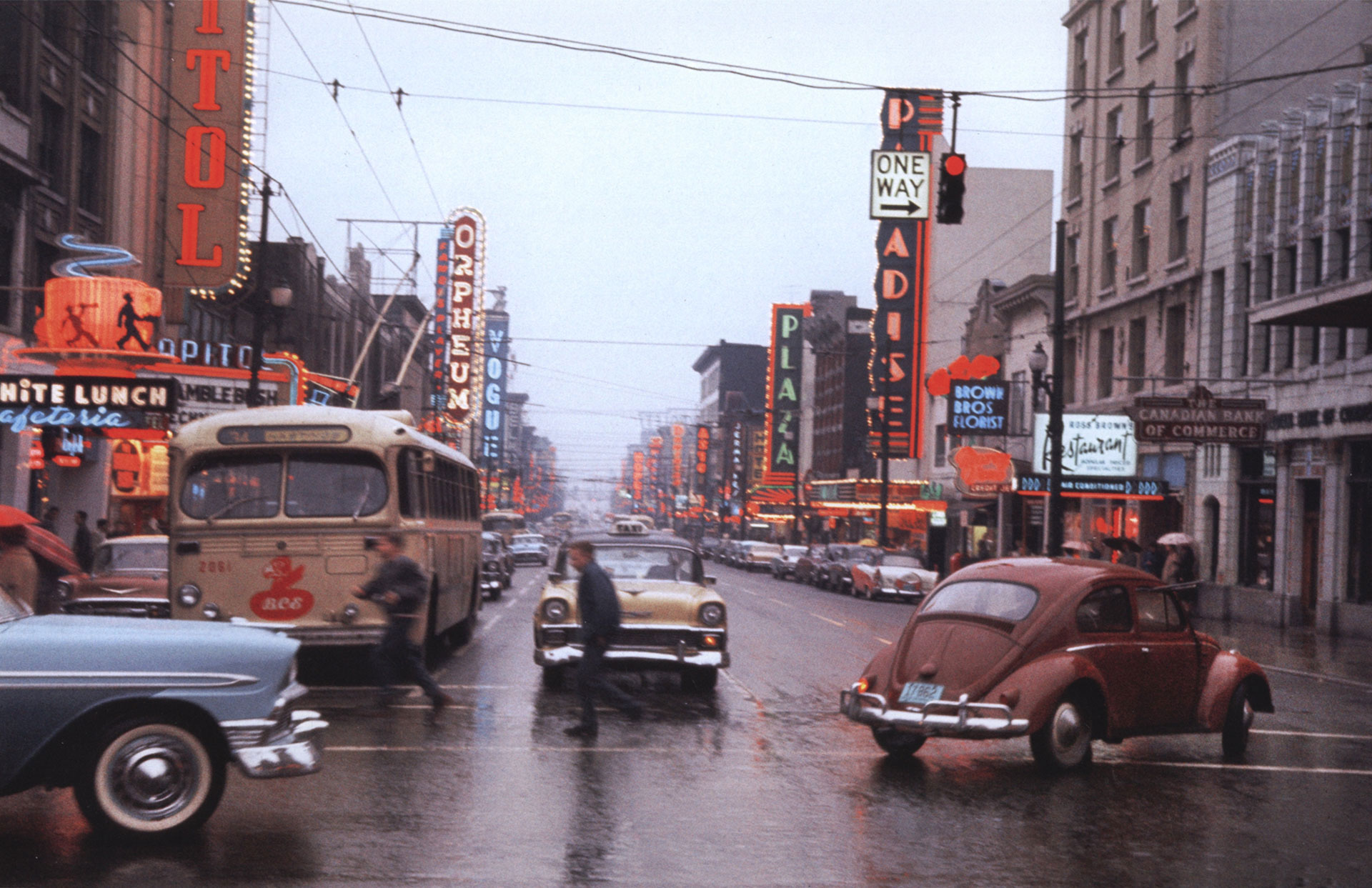


Missing Mulligan
I spend an afternoon with the “missing” member from the 80s punk band Fashiön, Salvatore Mulligan, to discuss his latest transition into a painter and a designer, religion, love and style.
By: Estefanía Pérez
Target publication: ELLE
The gloomy background of a rainy Camden Passage fits John Joe Salvatore Martinez Marion Mulligan like a glove. His three piece dove grey suit. His heavy double breasted navy coat. His Homburg hat. His twisted, Salvador Dali-like moustache. His very, very, very long name. It is almost as if Salvatore Mulligan did not belong in this reality, but inside the roll of an old, classic movie. One with gangsters and painters. He’s not a gangster, even though he does mention Peaky Blinders a few times, but he is a painter. And a designer. And a musician. And a music producer, too. Once upon a time he was simply known as "Mulligan", or "that bass guy in the dreadlocks from Fashiön". By the time we are led to our table at Frederick’s, the only trouble is which one of these lives should one ask him about.
"I have brought some photos I'd like to show you," he says, dirty martinis already on their way. "Some are from this new website I am making, and this is a photo of me wearing one of the suits I designed… oh! And here's one of me with Milli Vanilli." From the way he laughs as he looks at himself on the photos, one would think he’s looking into somebody else’s memories. The dreadlocked young man on the black and white photograph he's showing me laughs back at him. The martinis arrive.
It is not that Salvatore Mulligan doesn't like to talk about himself, it is only that he'd rather be talking about anything else. His current many projects, his best friend of many years, the one time he went to Italy and fell in love with the decidedly unique Italian sun. "I just think it's so dreadful to talk about the past!" He says while very focusedly trying to fish an olive from his martini. "When you said you wanted to meet for an interview, I was scared you'd want to talk about Fashiön." He smiles his shy smile and finally eats his olive. Somehow it feels less shy after that.
Salvatore was born in Birmingham and raised by Catholic parents. He attended art school and in 1978 he founded the band Fashiön along Dick Davis and Alan James, who would later be known as Luke Skyscraper. The latter launched a MySpace site devoted to the band he left in 1978 in 2007, where he stated that from the original members of the band, two were dead, and one was missing. He was talking about Salvatore. "I never went missing!" He says, amused. "I simply wanted to do other things." Other things here meant producing and programming music with the likes of Duran Duran, Milli Vanilli and Bananarama. When Salvatore decided to put the synthesiser down, he picked up his old sketchbook and began designing again. “I remember from our first gigs as Fashiön, the people commented so much on our clothes, on the posters and Tee-Shirt we used to advertise our concerts, that we began selling them.” There is a pause, as if he’d caught himself saying something he shouldn’t, but carries on: “We ended up making more money from those than from the actual gigs! Can you believe that?” I nod, but my reaction seems to be insufficient, so he shows me some of his latest oil paintings. It is even easier to believe him now. There is a beautiful lady that appears often in his paintings. “She’s my best friend. The absolute love of my life. We’ve known each other for so long…” She is also the woman mentioned on multiple online articles as his wife. “She’s married.” Mulligan tells me. There is no trace of sadness in his voice.
We decide we are bored of Frederick’s and decide to walk to a nearby stop for dinner. Before we leave, Mulligan asks me to inspect his hat. “It’s an American hat.” He informs me. “You wouldn’t find one like that in London.” Salvatore’s predilection for a very unique and personal style comes from his childhood in Birmingham, from a military older cousin who had taught young Mulligan the importance to always look one’s best. “He was also named John Joe, it’s a family name.” Mulligan shrugs and smiles. “Catholics, you see?”
As we step out of the bar, it is hard not to picture a Victorian walking cane in Mulligan’s hand, with the way he carries himself. The thought of his cousin John Joe and the ghost of Catholic religion follow us all the way to the restaurant. Maybe it’s the cold, but I dare to wonder out loud whether we Catholics try to look our best, not for anybody in particular, but for God. Mulligan stops right in his tracks. “Know what? I think that’s exactly what it is.” He smiles, no longer shy, and winks.